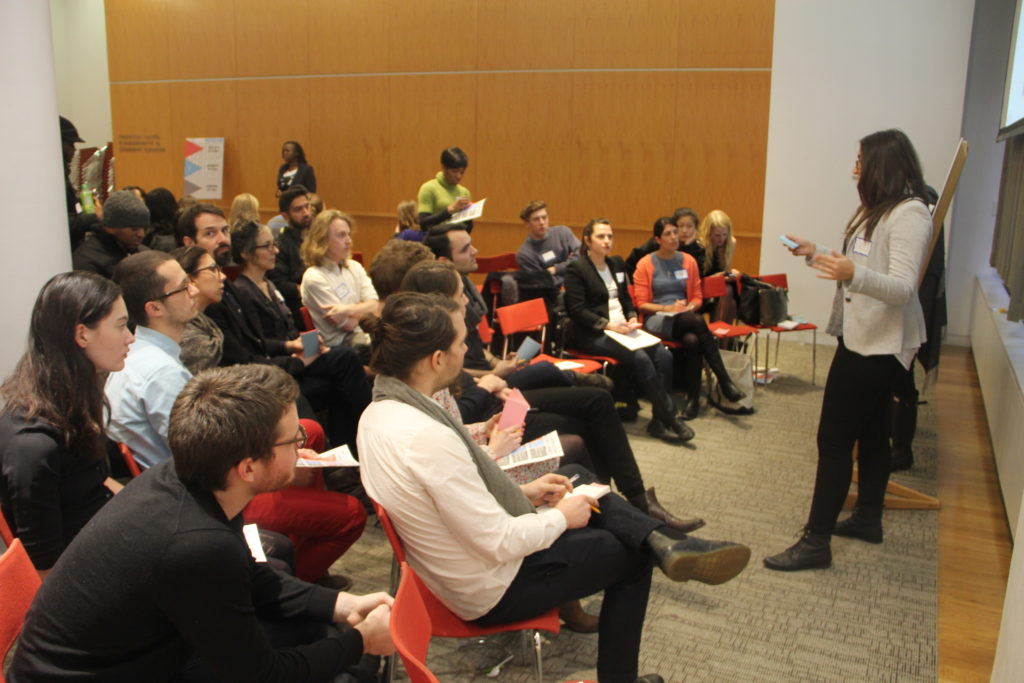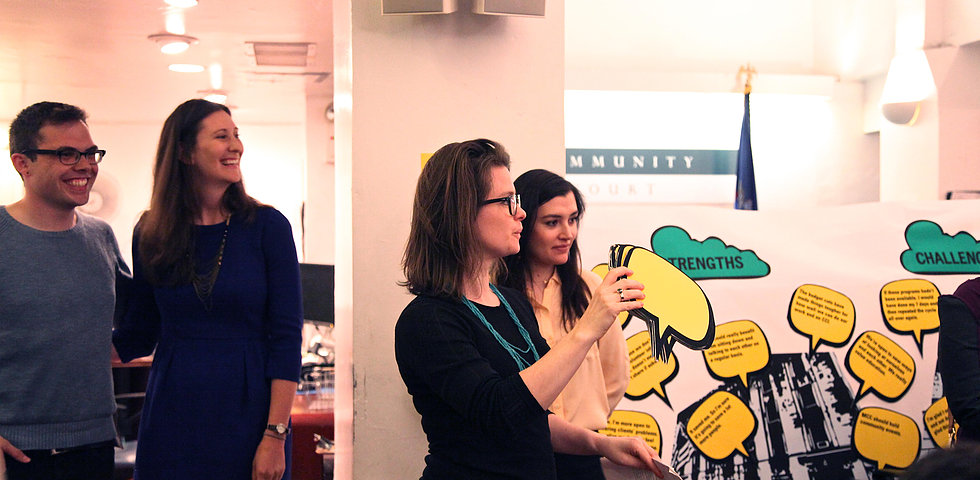A central aspect of the vision of The New School is to orient students’ academic experiences to help them become critically engaged citizens, dedicated to solving problems and contributing to the public good. One way we achieve this is through collaborative, project-based learning that is directly engaged with real-world issues. Socially engaged learning involves the collaboration of students and faculty with communities, organizations, and institutions in the co-production of knowledge and understanding of the world.
Social engagement is an essential part of the University’s progressive legacy and educational vision. Given the complexity of today’s world, socially engaged education, with its focus on critical thinking, creativity, problem solving, and collaboration is essential to prepare students for the 21st century. Students must be equipped to work across boundaries (sectors, cultures, disciplines, etc.) to solve problems in innovative ways and to act as responsible and active citizens. To achieve this, it is imperative to create learning environments that are interdisciplinary and engaged with real-world problems and partners. In addition to its educational value, The New School’s public engagement contributes to new knowledge and capacities that benefit diverse external partners and communities.

Across The New School, socially engaged pedagogy varies across diverse dimensions including, among others: the relationship between external partners, faculty, students, and communities; lengths of the partnership; class structure, pedagogy, and content; student outputs; intended learning outcomes and partner outcomes.
A range of pedagogy
Pedagogy varies across the projects in diverse ways, for example:
- Students work on projects directly with members of partner communities to co-create solutions or possibilities to address a defined area of common interest or concern
- Students work with a partner organization as a “client,” producing agreed upon deliverables (usually related to improving organizational performance).
- Students work in a community location associated with a partner organization and create site-specific projects, but neither produce work “for” nor “with” the partner.
- Students extend the socially engaged projects that they began in courses and, sometimes with financial support from the university, work independently to advance and more deeply embed the work in communities.
A range of intended learning outcomes
Intended student learning outcomes vary across the projects, but include, among others:
- Thinking innovatively, critically and creatively about how to address social issues;
- Using emerging theories of social innovation and social justice to understand how change happens within organizations, communities, and systems;
- Understanding and respecting the needs, perspectives, and contributions of relevant communities;
- Using interdisciplinary methods and frameworks for creating change, including those that emphasize co-creating solutions to identified needs with communities;
- Collaborating effectively with diverse people from different backgrounds;
- Building confidence, agency and leadership capacity to address complex social issues; and
- Instilling a commitment to civic participation in one’s life
A range of intended partner and community outcomes
Intended outcomes for partner organizations and communities from engagement with The New School include the development of, for example:
- Creative tools and strategies that enhance partner organizations programmatically and operationally;
- New community-based capacities;
- New “spaces” to elicit voices and concerns not normally heard and to support dialogue among diverse community members; and
- Changes in policy, programs and agendas

